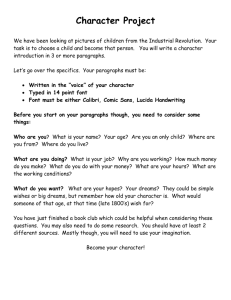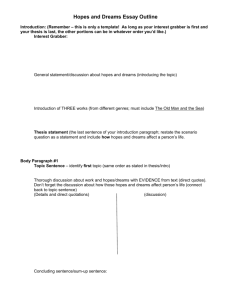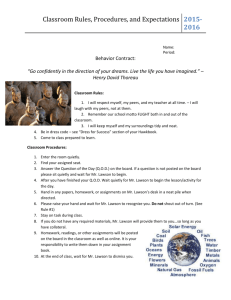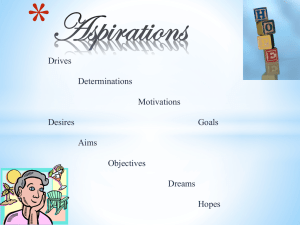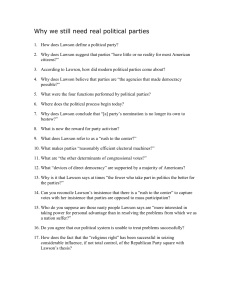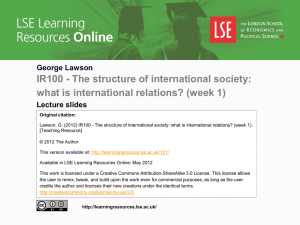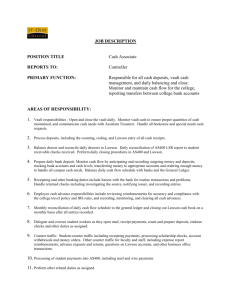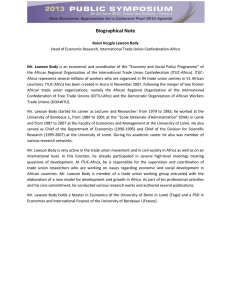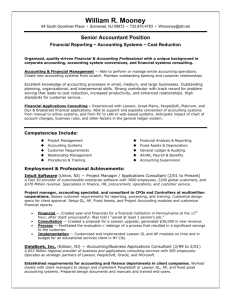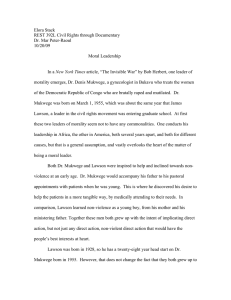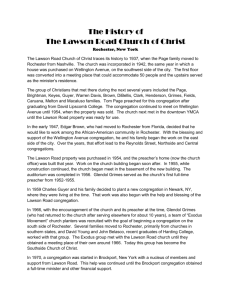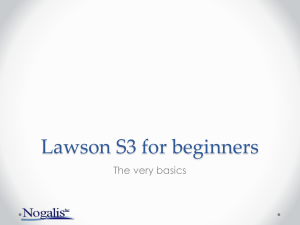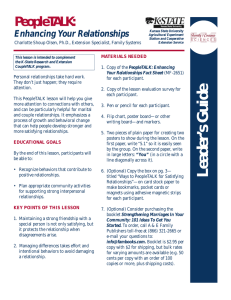surviving the career hopes and dreams of parents
advertisement
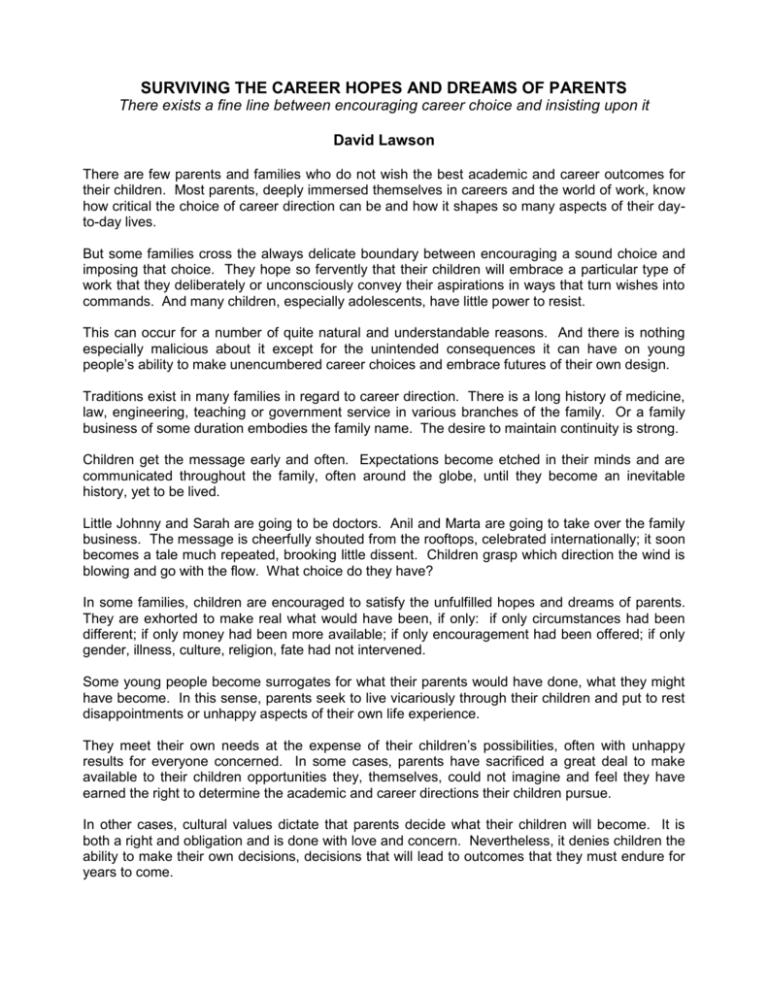
SURVIVING THE CAREER HOPES AND DREAMS OF PARENTS There exists a fine line between encouraging career choice and insisting upon it David Lawson There are few parents and families who do not wish the best academic and career outcomes for their children. Most parents, deeply immersed themselves in careers and the world of work, know how critical the choice of career direction can be and how it shapes so many aspects of their dayto-day lives. But some families cross the always delicate boundary between encouraging a sound choice and imposing that choice. They hope so fervently that their children will embrace a particular type of work that they deliberately or unconsciously convey their aspirations in ways that turn wishes into commands. And many children, especially adolescents, have little power to resist. This can occur for a number of quite natural and understandable reasons. And there is nothing especially malicious about it except for the unintended consequences it can have on young people’s ability to make unencumbered career choices and embrace futures of their own design. Traditions exist in many families in regard to career direction. There is a long history of medicine, law, engineering, teaching or government service in various branches of the family. Or a family business of some duration embodies the family name. The desire to maintain continuity is strong. Children get the message early and often. Expectations become etched in their minds and are communicated throughout the family, often around the globe, until they become an inevitable history, yet to be lived. Little Johnny and Sarah are going to be doctors. Anil and Marta are going to take over the family business. The message is cheerfully shouted from the rooftops, celebrated internationally; it soon becomes a tale much repeated, brooking little dissent. Children grasp which direction the wind is blowing and go with the flow. What choice do they have? In some families, children are encouraged to satisfy the unfulfilled hopes and dreams of parents. They are exhorted to make real what would have been, if only: if only circumstances had been different; if only money had been more available; if only encouragement had been offered; if only gender, illness, culture, religion, fate had not intervened. Some young people become surrogates for what their parents would have done, what they might have become. In this sense, parents seek to live vicariously through their children and put to rest disappointments or unhappy aspects of their own life experience. They meet their own needs at the expense of their children’s possibilities, often with unhappy results for everyone concerned. In some cases, parents have sacrificed a great deal to make available to their children opportunities they, themselves, could not imagine and feel they have earned the right to determine the academic and career directions their children pursue. In other cases, cultural values dictate that parents decide what their children will become. It is both a right and obligation and is done with love and concern. Nevertheless, it denies children the ability to make their own decisions, decisions that will lead to outcomes that they must endure for years to come. Helping children make good career and academic decisions is rarely easy for most families. It is part of an ongoing process of investigation, discovery and negotiation that can easily become an obsession and lead to anxiety, conflict, tears and hand wringing. If I’ve learned anything in the past 25 years of helping families manage this challenge, it is that young adults possess strengths, behaviours, interests and values that will help them thrive in some careers much more than others. What they need most is support in exploring and identifying their special abilities, understanding where they fit best and then developing plans to get from here to there. Ultimately, all children are exceptional. They have an urgent need to forge a unique destiny that they alone own and take responsibility for. It seems to me that the primary focus of parents and families should be to provide their children with the support and resources to achieve this goal as confidently as possible. David Lawson is a career counsellor with Career Solutions in Burlington specializing in helping secondary and post-secondary students and adults manage educational and career planning challenges. He can be reached at careersolutions@cogeco.ca or www.lawsoncareersolutions.ca
